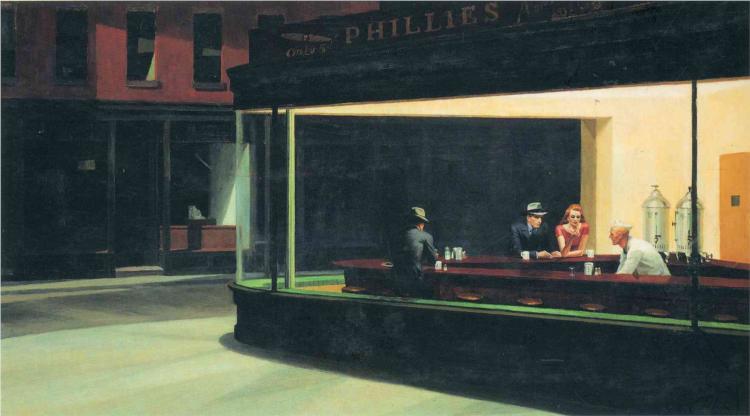Like primitives we buried the cat
with his bowl. Bare-handed
we scraped sand and gravel
back into the hole. It fell with a hiss
and thud on his side,
on his long red fur, the white feathers
that grew between his toes, and his
long, not to say aquiline, nose.
We stood and brushed each other off.
There are sorrows much keener than these.
Silent the rest of the day, we worked,
ate, stared, and slept. It stormed
all night; now it clears, and a robin
burbles from a dripping bush
like the neighbor who means well
but always says the wrong thing.
Tag: Jane Kenyon
“Let Evening Come” by Jane Kenyon
Let the light of late afternoon
shine through chinks in the barn, moving
up the bales as the sun moves down.
Let the cricket take up chafing
as a woman takes up her needles
and her yarn. Let evening come.
Let dew collect on the hoe abandoned
in long grass. Let the stars appear
and the moon disclose her silver horn.
Let the fox go back to its sandy den.
Let the wind die down. Let the shed
go black inside. Let evening come.
To the bottle in the ditch, to the scoop
in the oats, to air in the lung
let evening come.
Let it come, as it will, and don’t
be afraid. God does not leave us
comfortless, so let evening come.
Jane Kenyon, “Let Evening Come” from Collected Poems. Copyright © 2005 by the Estate of Jane Kenyon. (Graywolf Press, 1990)
* Special thanks to reader Will G. for recommending this poem to us. Will said in his email, “One of (Kenyon’s) poems that I particularly love is “Let Evening Come”. To me this poem harbors a deep compassion that goes beyond sentient creatures to touch all forms including rakes and barn walls. Reading her poem is like returning to a favorite painting by Rothko. Every time I read the poem, I find new things in its colors.” Beautifully put, Will, thank you again. Words for the Year will be going on hiatus January 1; I’m grateful I could share Kenyon’s piece before our break.

“Happiness” by Jane Kenyon
There’s just no accounting for happiness,
or the way it turns up like a prodigal
who comes back to the dust at your feet
having squandered a fortune far away.
And how can you not forgive?
You make a feast in honor of what
was lost, and take from its place the finest
garment, which you saved for an occasion
you could not imagine, and you weep night and day
to know that you were not abandoned,
that happiness saved its most extreme form
for you alone.
No, happiness is the uncle you never
knew about, who flies a single-engine plane
onto the grassy landing strip, hitchhikes
into town, and inquires at every door
until he finds you asleep midafternoon
as you so often are during the unmerciful
hours of your despair.
It comes to the monk in his cell.
It comes to the woman sweeping the street
with a birch broom, to the child
whose mother has passed out from drink.
It comes to the lover, to the dog chewing
a sock, to the pusher, to the basketmaker,
and to the clerk stacking cans of carrots
in the night.
It even comes to the boulder
in the perpetual shade of pine barrens,
to rain falling on the open sea,
to the wineglass, weary of holding wine.
—Jane Kenyon, from Otherwise: New and Selected Poems, 2005. Graywolf Press, Saint Paul, MN. Copyright 2005 by Jane Kenyon.
“Otherwise” by Jane Kenyon
I got out of bed
on two strong legs.
It might have been
otherwise. I ate
cereal, sweet
milk, ripe, flawless
peach. It might
have been otherwise.
I took the dog uphill
to the birch wood.
All morning I did
the work I love.
At noon I lay down
with my mate. It might
have been otherwise.
We ate dinner together
at a table with silver
candlesticks. It might
have been otherwise.
I slept in a bed
in a room with paintings
on the walls, and
planned another day
just like this day.
But one day, I know,
it will be otherwise.
—Jane Kenyon, from Otherwise: New and Selected Poems. Copyright 1996 by the Estate of Jane Kenyon.
“Coming Home at Twilight in Late Summer” by Jane Kenyon
We turned into the drive,
and gravel flew up from the tires
like sparks from a fire. So much
to be done—the unpacking, the mail
and papers … the grass needed mowing ….
We climbed stiffly out of the car.
The shut-off engine ticked as it cooled.
And then we noticed the pear tree,
the limbs so heavy with fruit
they nearly touched the ground.
We went out to the meadow; our steps
made black holes in the grass;
and we each took a pear,
and ate, and were grateful.
“Coming Home at Twilight in Late Summer” by Jane Kenyon, from Collected Poems. © Graywolf Press, 2005.
